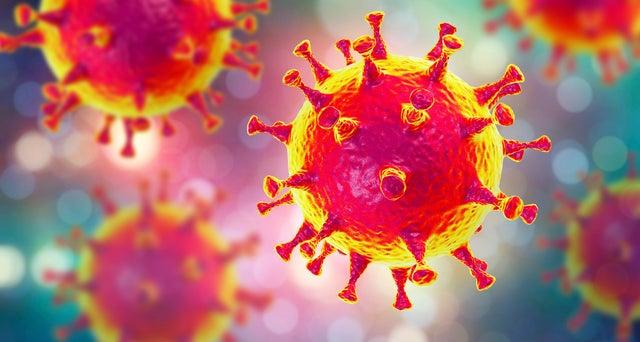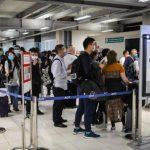There is currently an ongoing outbreak of the SARS-like coronavirus in certain parts of the globe, with 177 confirmed cases of the virus in Thailand.
The World Health Organization says the official name for the disease caused by the new coronavirus is Covid-19, and has now declared the outbreak as a pandemic.
The Coronavirus has infected more than 183,000 people globally, with the death toll now over 7,100.
Is it safe to travel to Thailand? Here’s everything you need to know about the current travel advice.
What is the coronavirus?
The virus originated in Wuhan City, Hubei Province, but cases have now been confirmed in other parts of China and numerous countries around the globe, including Thailand.
Coronaviruses are a large family of viruses, and the Centers for Disease Control and Prevention (CDC) explains that they usually cause “mild to moderate upper-respiratory tract illnesses, like the common cold. Most people get infected with these viruses at some point in their lives.
“These illnesses usually only last for a short amount of time.”
The NHS notes that the symptoms of coronavirus are:
a cough high-temperature shortness of breath
They add that, “these symptoms do not necessarily mean you have the illness.
“The symptoms are similar to other illnesses that are much more common, such as cold and flu.”
However, human coronaviruses can sometimes cause lower-respiratory tract illnesses, such as pneumonia, bronchitis or more severe diseases such as severe acute respiratory syndrome (SARS).
Is it safe to travel to Thailand?
With the virus having been found in China, Japan, South Korea, Thailand and outside of Asia, guidance has been issued regarding safe travel.
When it comes to travelling to Thailand, the FCO has not issued a warning against travel to Thailand relating to the coronavirus outbreak, but Gov.uk has said: “There is an ongoing outbreak of coronavirus (COVID-19). The virus originated in China but cases have been confirmed in other countries, including Thailand.
“Due to the ongoing outbreak, popular tourist events across Thailand including full moon parties and Songkran celebrations may be cancelled or postponed by organisers. If you are planning to go to an event you should check with organisers before you travel.”
“The Thai authorities have introduced a number of screening, surveillance, prevention and control measures to limit the spread of the virus, and additional measures may be introduced. You should comply with any additional measures put in place by the local authorities.”
For passengers who travelled from or transited China (including Hong Kong and Macau), Italy, Iran and South Korea in the 14 days prior to their arrival in Thailand, Thai authorities have screening measures in place. They may quarantine some passengers either in designated facilities or require them to self-isolate at home/accommodation.
This would be for a minimum of 14 days from the date of their arrival in Thailand or until their departure, if sooner.
The Civil Aviation Authority of Thailand have also instructed airlines not to fly passengers to Thailand from these countries unless they are in possession of a health certificate confirming they do not have coronavirus. You should check with your airline before you travel.
For passengers who have travelled from or transited the United Kingdom, Denmark, France, Germany, Japan, the Netherlands, Norway, Singapore, Spain, Sweden, Switzerland, Taiwan and the United States of America in the 14 days prior to their arrival in Thailand, Thai authorities have screening measures in place.
These measures may include self-monitoring for 14 days and reporting symptoms to Thai health authorities.
“Thai authorities may introduce further measures including a requirement for travellers to report their health status and symptoms to Thai health officials via a mobile application,” adds the FCO.
“You can monitor the latest updates from Thailand’s Ministry of Public Health on its website, and refer to their Q&A for travellers.
“If you’re returning to the UK from Thailand, consult the latest advice from the Department of Health and Social Care on actions you should take if you develop symptoms on your return.”
Previous advice relating to travel to certain areas of Thailand due to safety concerns still stands.
The FCO “advise against all but essential travel to areas within the provinces on the Thailand-Malaysia border, including:
PattaniYalaNarathiwatSouthern Songkhla province. This does not include areas north of and including the A43 road between Hat Yai and Sakom, and areas north-west of and including the train line which runs between Hat Yai and Pedang Besar.”
These are the symptoms of coronavirus (Photo WHO)
 Advice for returning travellers
Advice for returning travellers
Stay indoors and avoid contact with other people if you’ve travelled to the UK from the following places, even if you do not have symptoms:
anywhere in Italy on or after 9 Marchspecific areas in northern Italy in the last 14 daysIran in the last 14 daysHubei province in China in the last 14 daysDaegu, Cheongdo or Gyeongsan in South Korea in the last 14 days
Stay indoors and avoid contact with other people if you’ve travelled to the UK from the following places in the last 14 days and have a cough, high temperature or shortness of breath, even if your symptoms are mild:
Italy (outside specific areas in northern Italy) before 9 Marchmainland China outside of Hubei province south Korea outside of Daegu, Cheongdo and GyeongsanCambodiaHong KongJapanLaosMacauMalaysiaMyanmarSingaporeTaiwanThailandVietnam
Use the 111 online coronavirus service to find out what to do next.
Do not go to a GP surgery, pharmacy or hospital.
In Scotland call your GP or NHS 24 on 111 out of hours.
In Wales call 111 (if available in your area) or 0845 46 47.
See COVID-19: specified countries and areas for more information and maps of specific areas.
Specific areas in northern Italy:
Lombardy region (which includes the cities of Milan, Bergamo and Como)the provinces of Modena, Parma, Piacenza, Reggio Emilia and Rimini (all in Emilia Romagna)Pesaro e Urbino (in Marche)Alessandria, Asti, Novara, Verbano-Cusio-Ossola and Vercelli (all in Piemonte)Padova, Treviso and Venice (in Veneto)
Gov.uk adds:
“This guidance is based on the recommendations of the UK Chief Medical Officers. These areas have been identified because of the volume of air travel from affected areas, understanding of other travel routes and number of reported cases. This list will be kept under review.
“For areas with direct flights to the UK we are carrying out enhanced monitoring. Passengers will be told how to report any symptoms they develop during the flight, at the time of arrival, or after leaving the airport.”
Coronavirus: the facts
What is coronavirus?
COVID-19 is a respiratory illness that can affect lungs and airways. It is caused by a virus called coronavirus.
What caused coronavirus?The outbreak started in Wuhan in China in December 2019 and it is thought that the virus, like others of its kind, has come from animals.
How is it spread?As this is such a new illness, experts still aren’t sure how it is spread. But.similar viruses are spread in cough droplets. Therefore covering your nose and mouth when sneezing and coughing, and disposing of used tissues straight away is advised. Viruses like coronavirus cannot live outside the body for very long.
What are the symptoms?
The NHS states that the symptoms are: a dry cough, high temperature and shortness of breath – but these symptoms do not necessarily mean you have the illness. Look out for flu-like symptoms, such as aches and pains, nasal congestion, runny nose and a sore throat. It’s important to remember that some people may become infected but won’t develop any symptoms or feel unwell.
What precautions can be taken?
Washing your hands with soap and water thoroughly. The NHS also advises to cover your mouth and nose with a tissue or your sleeve (not your hands) when you cough or sneeze; put used tissues in the bin immediately and try to avoid close contact with people who are unwell. Also avoiding touching eyes, nose and mouth unless your hands are clean.
Should I avoid public places?
Most people who feel well can continue to go to work, school and public places and should only stay at home and self isolate if advised by a medical professional or the coronavirus service.
What should I do if I feel unwell?
Don’t go to your GP but instead call NHS 111 or look online at the coronavirus service that can tell you if you need medical help and what to do next.
When to call NHS 111
NHS 111 should be used if you feel unwell with coronavirus symptoms, have been in a country with a high risk of coronavirus in the last 14 days or if you have been in close contact with someone with the virus.




